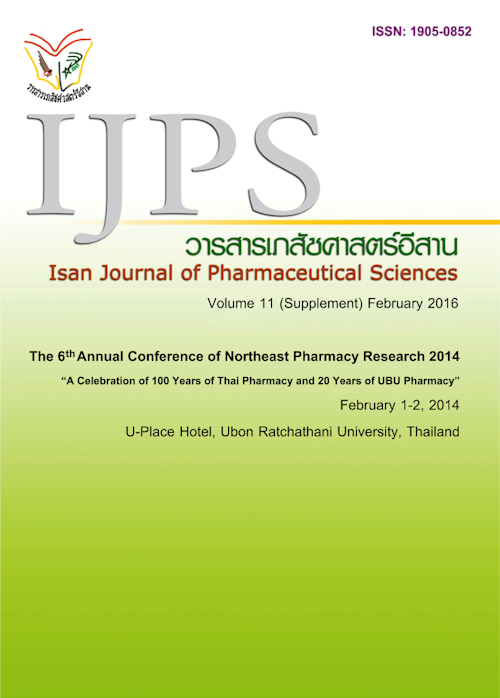Antibacterial activity of Garcinia mangostana against Methicillin-Sensitive Staphylococcus aureus (MSSA) and Methicillin-Resistant Staphylococcus aureus (MRSA)
Main Article Content
Abstract
Introduction: Garcinia mangostana has been traditionally used for skin infection but little is known about its antimicrobial activity. Materials and Method: Antibacterial activity of G. mangostana extracts from different extraction solvents against Methicillin-Sensitive Staphylococcus aureus (MSSA) and Methicillin-Resistant Staphylococcus aureus (MRSA) was performed using agar well diffusion. Minimum Inhibitory Concentration (MIC)and Minimum Bactericidal Concentration (MBC) were determined by microdilution method. In addition, the content of chemical markers (total phenolic, flavonoids, and anthocyanin) and tannin contribution of the extract were analyzed. Results: The ethanolic extract of G. mangostana showed the highest antibacterial activity against MSSA with MIC at 6.25 µg/ml and MBC at 12.50 µg/ml, respectively, and activity against MRSA with MIC and MBC at the same values of 6.25 µg/ml, whereas oxacillin, a positive control, showed MIC against MSSA at 0.625 mg/ml. The tannin contribution might be a factor associated with the antibacterial activity of the G. mangostana extracts, at least in part, in which the ethanolic extract had tannin contribution about 67.80%. Conclusion: These observations suggested the ethanolic extract of G. mangostana as a promising antibacterial candidate against MSSA and MRSA. Therefore, it is of interest to further study whether an active constituent mangostinwould have antibacterial role against MSSA and MRSA.
Article Details
In the case that some parts are used by others The author must Confirm that obtaining permission to use some of the original authors. And must attach evidence That the permission has been included

